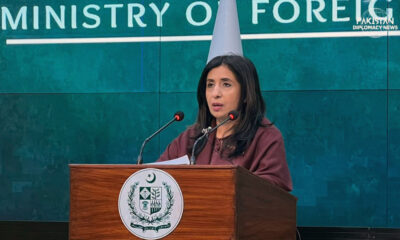Latest News
UN report claims Afghanistan’s morality police are violating human rights
According to the report, the ministry has enforced decrees that have a disproportionate impact on women and girls, like dress codes, segregated education and employment, and having a male guardian when they travel.
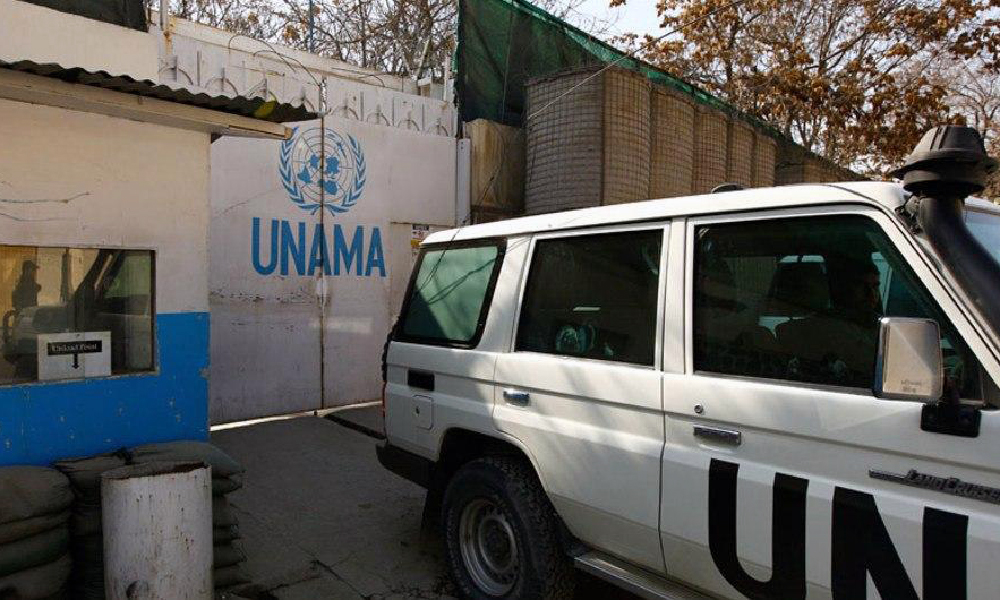
The UN said Tuesday the ministry for the propagation of virtue and prevention of vice were violating human rights and fundamental freedoms and that decrees and methods used to enforce rules were contributing to “a climate of fear and intimidation among segments” of society in Afghanistan.
The report, titled ‘De Facto Authorities’ Moral Oversight in Afghanistan: Impacts on Human Rights’ was published Tuesday and also contained the Islamic Emirate’s response to the UN’s findings.
The report stated: “As part of this engagement, Afghanistan’s de facto authorities were invited to provide factual comments on the content of the report.”
According to the report, the ministry has enforced decrees that have a disproportionate impact on women and girls, like dress codes, segregated education and employment, and having a male guardian when they travel.
“The punishments attached to non-compliance with instructions and decrees are often arbitrary, severe and disproportionate,” the report read.
“Sweeping bans with a discriminatory effect on women have been introduced. Human rights violations, as well as the unpredictability of enforcement measures, contribute to a climate of fear and intimidation among segments of the population,” the report stated.
UNAMA said it had recorded at least 1,033 instances between August 2021 and March 2024 where ministry employees “applied force during the implementation of instructions, resulting in violations of the liberty, and physical and mental integrity” of people.
The IEA responded by saying the decrees issued by the supreme leader lay “the foundation of the formal documents that are based on Islamic sources. It is a widely recognized principle in all common regimes that decrees and relevant legal documents are issued to reform society and should have their implementation ensured.”
UNAMA also stated that the use of corporal punishment was a violation of the prohibition on torture and cruel, inhuman and degrading treatment or punishment.
The organization added that the requirement for women to travel with a mahram (male guardian) beyond 78 kilometers from their home limits their right to freedom of movement and creates financial and logistical barriers for them to access employment and healthcare.
In response to this, the Islamic Emirate said the presence of mahram with a woman “is not only an Islamic value; it is also a cultural value.”
“A woman encounters criticism from the general public when she travels without a mahram. It is frowned upon in Afghan society for women to travel without a mahram.”
The IEA added that Islam also “specifies a certain distance for a woman to be accompanied by a mahram when she travels. To this end, the mahram's presence with a woman serves to safeguard her honor and chastity.”
The report meanwhile stated that since the ministry’s establishment, its scope of responsibility has continued to expand. “In addition to intensifying monitoring of compliance with existing policies, it has introduced new instructions and expanded into new areas of enforcement,” UNAMA stated.
These areas include monitoring of the media, the eradication of drug addiction, policing of gold dealers, regulating businesses and dispute mediation between individuals, among others.
The Islamic Emirate in turn said “acts are seen as either legal or illegal,” and that the ministry was a key organization within the Islamic Emirate’s governing framework and that its “role is growing as required by the situation”.
However, Fiona Frazer, the head of UNAMA’s Human Rights Service said: “Given the multiple issues outlined in the report, the position expressed by the de facto authorities that this oversight will be increasing and expanding gives cause for significant concern for all Afghans, especially women and girls.”
Overall, the ministry rejected the UN report, calling its findings false and contradictory.
“Decrees and relevant legal documents are issued to reform society and should have their implementation ensured,” the ministry said.
CLICK HERE FOR THE FULL REPORT
Related stories:
Protection of Islamic system ‘obligatory’: virtue and vice minister Hanafi
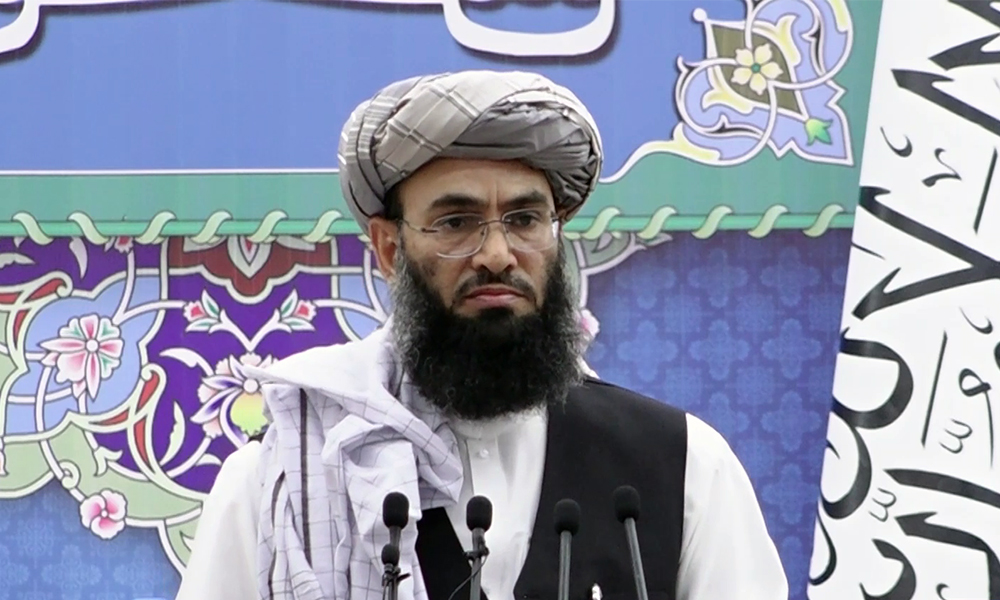
UNAMA issues latest rights report, notes ongoing challenges for women, girls and media
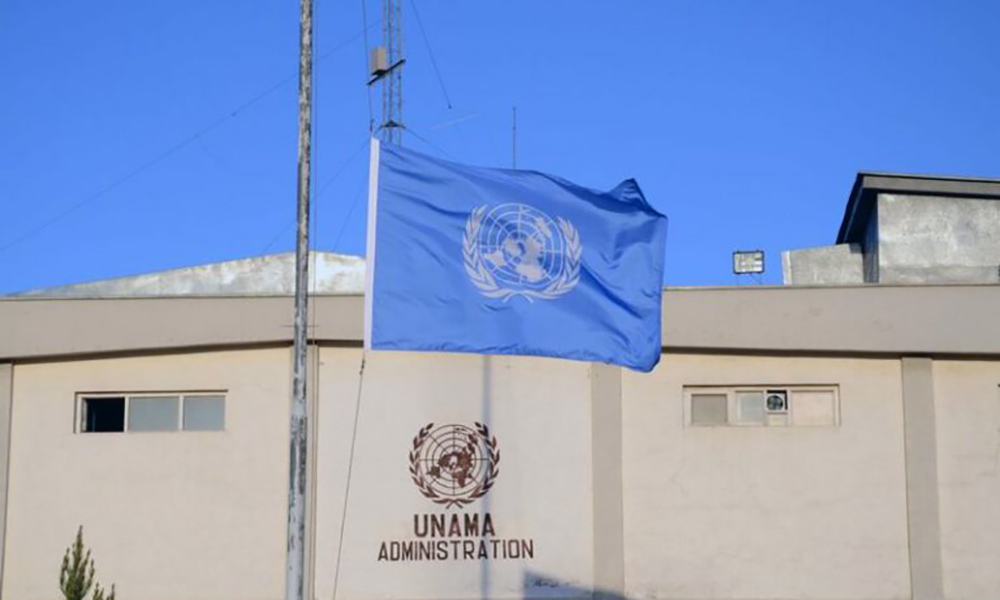
Latest News
Mujahid says IEA stands with media outlets
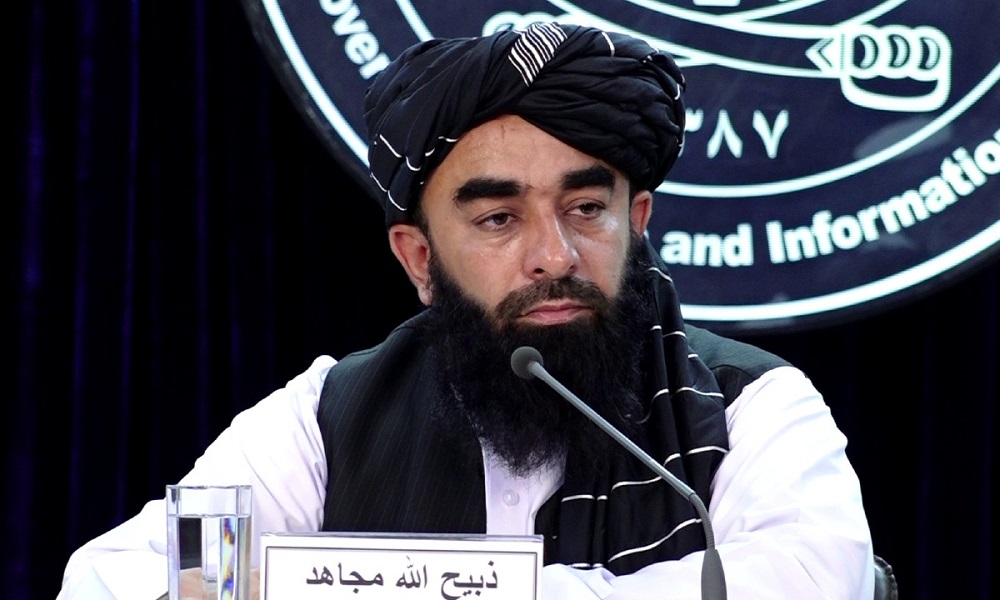
The Islamic Emirate’s spokesman Zabihullah Mujahid says the acting government is committed to supporting media outlets and they can operate within the framework of Islamic Sharia and national interests.
Marking World Television Day on Thursday, November 21, Mujahid said: “The Islamic Emirate of Afghanistan supports the media in general. Media can operate within the framework of Islamic Sharia and national interests.”
“As far as we are able, we cooperate with the media and the Afghan media currently have publications and they are broadcasting their publications well,” he added.
The United Nations General Assembly named November 21 as World Television Day in 1996.
“Since IEA’s takeover, of 184 national and local televisions, 57 television stations were shut down due to economic problems,” said Hojatullah Mujadadi, the head of Afghanistan Free Journalists' Association (AFJU).
Currently, about 370 visual, audio and print media are active in the country.
Latest News
Baradar says water crisis has negatively impacted relations between nations
Baradar expressed regret that although Afghanistan has vast water resources, effective and professional management has not been carried out in this area.

Deputy Prime Minister for Economic Affairs, Mullah Abdul Ghani Baradar, said on Thursday that the ongoing water crisis in the country has not only made neighboring countries face the problem of water scarcity, but it has also had a negative impact on political and economic relations between Afghanistan and these countries.
Speaking at a seminar held by the Ministry of Energy and Water, Baradar said that although water is a renewable natural resource, the shortage of water due to climate change, the increase in the level of water pollution, the growing demand of the people and its excessive consumption affects the country.
He expressed regret that although Afghanistan has vast water resources, effective and professional management has not been carried out in this area.
“It is now the responsibility of the Islamic Emirate of Afghanistan to fulfill its national duty for the optimal management of the country’s water resource,” Baradar said.
“With firm determination, we aim to use all available means to ensure sustainable development in water management.”
Last month, the United Nations Children's Fund (UNICEF) also warned that Afghanistan is experiencing a severe water crisis, and if no action is taken, Kabul’s underground water resources could be depleted by 2030.
In a message on X, UNICEF reported that Roza Otunbayeva, head of the United Nations Assistance Mission in Afghanistan (UNAMA), and Tajudeen Oyewale, head of UNICEF Afghanistan, visited a Kabul district to assess the city's water supply network.
Both officials expressed concern over the worsening water shortage problem in the capital.
"Water is life," UNICEF stated, emphasizing that rapid urbanization and climate change are accelerating the depletion of groundwater in Kabul.
“If we don't act now, we cannot stop this process."
The rapid population growth, unplanned construction of high-rise buildings, urban development without proper planning, and the excessive use of underground water resources are major factors contributing to the decline in both the quantity and quality of groundwater in Kabul.
Although Kabul has faced water shortages for years, the crisis has become more severe in recent times.
However, the Islamic Emirate is making concerted efforts to resolve the problem and thwart the crisis.
Three weeks ago, the office of the Deputy Prime Minister for Economic Affairs, said in a statement that plans to construct a total of 355 water reservoirs across the country were being implemented.
According to the statement, of the 355 dams, a number of them have already been completed and inaugurated while others are under construction.
Of these reservoirs, 138 are being constructed by the Ministry of Agriculture, Irrigation, and Livestock; 117 by the Ministry of Water and Energy; and 100 by the Ministry of Rural Rehabilitation and Development.
All of these dams are being funded by the Islamic Emirate of Afghanistan, the statement read.
The reservoirs are being constructed in numerous provinces to manage rainwater, prevent flooding, strengthen groundwater levels and for use by communities.
Iran’s water share
Late last year, Iranian Energy Minister Ali Akbar Mehrabian warned that if Afghanistan does not ensure Tehran receives its rightful amount of water from Helmand River, Iran will use legal and international means to resolve the problem.
Mehrabian stressed that Helmand River water is Iran's indisputable right, and that Iran takes the matter seriously.
“Water right is Iran's right and it is necessary to release it. Ensuring water rights is not optional, but it is mandatory based on the international treaty of 1351. Pursuing this matter is Iran's absolute right and we will not fail in this regard. The recent rains should cause the release of our water, and if not, we will take serious action based on international laws,” stressed Mehrabian.
At the time, the Islamic Emirate said it was committed to providing Iran with water from the Helmand River but due to drought, there is not enough water in the river to give Iran its share.
The Helmand River Water Treaty was signed between Afghanistan and Iran in 1973, according to which Iran has the right to receive 850 million cubic meters of water from Afghanistan annually.
Latest News
Pakistan rejects suggestion of appointing a new special envoy for Afghanistan
Islamabad however continues to accuse Afghanistan of providing safe havens to militant groups that target Pakistan, including Tehreek-e-Taliban Pakistan (TTP).
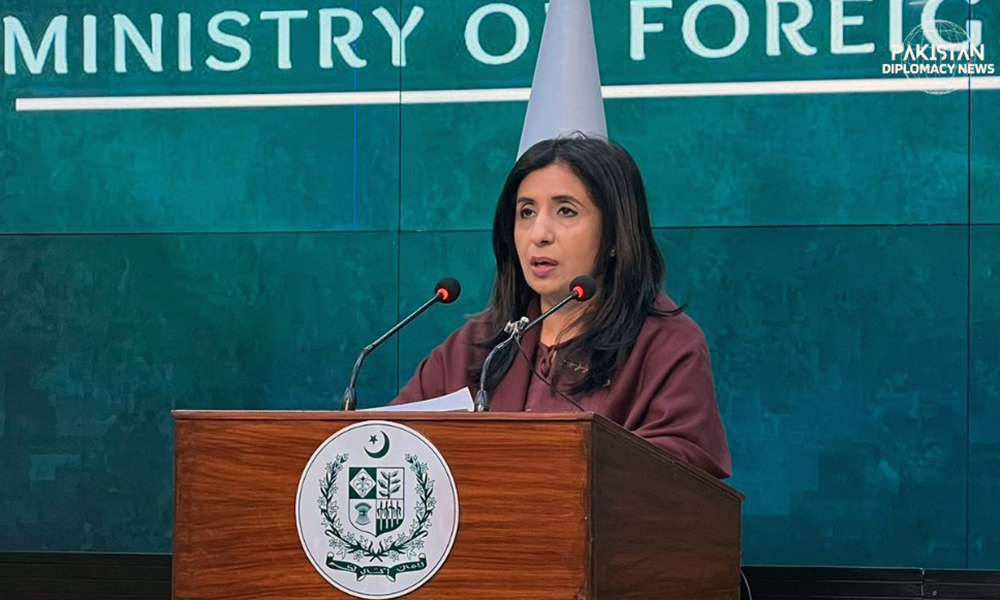
Pakistan’s Foreign Ministry Spokesperson Mumtaz Zahra Baloch has dismissed rumors that Islamabad is considering appointing a new special representative for Afghanistan.
Baloch said on Thursday that there was no truth in these reports but that special envoys for Afghanistan from Russia and China had recently visited Pakistan and met with officials.
In August, Pakistan dismissed its special envoy to Afghanistan, Asif Durrani, and has not yet appointed a replacement.
Addressing a weekly briefing on Thursday, Baloch also raised the issue of militant groups in Afghanistan.
She also announced the latest data on Afghan refugees and said so far this year, Pakistan has expelled almost 800,000 undocumented migrants from the neighboring country.
She said the process still continues to ensure a "successful and smooth return" of illegal Afghan nationals.
"Since November 2023 to October 2024, so far 757,008 undocumented Afghans were sent back to Afghanistan," Baloch said, adding that the figure also includes those who returned voluntarily.
According to UN figures, some 1.3 million Afghans are registered refugees in Pakistan, while another 880,000 have legal status to stay.
Pakistan started its crackdown on all foreigners living in the country illegally late last year.
According to Islamabad, the rise in militant attacks led them to making this decision.
Islamabad however continues to accuse Afghanistan of providing safe havens to militant groups that target Pakistan, including Tehreek-e-Taliban Pakistan (TTP).
This claim has repeatedly been rejected by the Islamic Emirate, who state they will not allow any group to use Afghan soil against another country.
-

 Latest News5 days ago
Latest News5 days agoOttawa taking detention of Canadian in Afghanistan ‘very seriously’
-

 Sport5 days ago
Sport5 days agoFIFA unveils Innovative Club World Cup Trophy ahead of new tournament in 2025
-

 Regional5 days ago
Regional5 days agoIndia’s successful test of hypersonic missile puts it among elite group
-

 Latest News5 days ago
Latest News5 days agoTrump team compiling list of military officers responsible for US withdrawal from Afghanistan
-

 Latest News5 days ago
Latest News5 days agoCanada sent 19 failed asylum seekers back to Afghanistan last year
-

 Sport4 days ago
Sport4 days agoAbu Dhabi’s thrilling T10 tournament just days away
-

 World4 days ago
World4 days agoBiden allows Ukraine to use US arms to strike inside Russia
-

 Sport4 days ago
Sport4 days agoAfghanistan beat UAE by 169 runs in U19 tri-series










